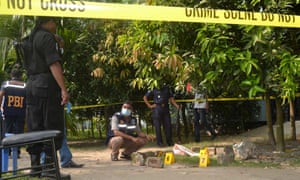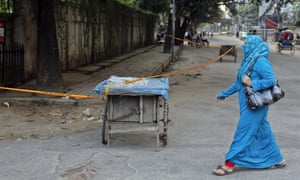Bangladesh- In The Shadow Of Global Terrorism
Dhaka Became The Centre Of Global Terrorism
Second foreigner killed in Bangladesh as Isis claims responsibility
A 66-year-old Japanese man, Kunio Hoshi, was shot in Rangpur, five days after the murder of an Italian, Cesare Tavella, in Dhaka, also claimed by Isis
A Japanese man has been killed near Rangpur in northern Bangladesh, five days after an Italian citizen was murdered in the capital Dhaka.
Islamic State claimed responsibility for the killing on Twitter, according to the SITE Intelligence Group, a US monitoring organisation. The jihadist group also said it carried out the killing of Cesare Tavella, from Italy, in Dhaka’s diplomatic zone on 28 September.
The deaths come after several western embassies, including the British and Australian high commissions, issued security warnings about possible militant attacks in the country.
Kunio Hoshi was shot three times in a remote rural region of Rangpur, where he had invested in a grass cultivation project, the regional police chief, Rezaul Karim, told the Guardian.
The 66-year-old first went to Bangladesh in 2011 and had visited every year since, police said. He last arrived about five months ago.
Shafqat Munir, a security analyst at the Bangladesh Institute of Peace and Security Studies, said no western citizen had been killed or targeted in the country for more than a decade.
The last such incident occurred in 2004, when the then British high commissioner in Bangladesh, Anwar Choudhury, was attacked Sylhet by the Islamist organisation Harkat-ul-Jihad al-Islami.
Bangladesh has since cracked down on militant activities and police have arrested several suspects with links to international terrorist groups, including Isis and al-Qaida.
“The groups in Bangladesh that have been in operation for many years have always been active and now, because of the rise of violent extremism worldwide, they are also upping their games,” Munir said.
In August, the country’s paramilitary agencyarrested a British citizen and three other people with alleged links to Is is over the killing of secular or atheist bloggers in the country.
Munir said: “What is extremely alarming is they are able to pull off these attacks despite a supposedly high level of security. After the murder of Cesare Tavella, there was a warning. We would like to believe that the state of alert is quite high. My fear is that this is not going to stop. It will continue and it might escalate.”
Asked about a connection or pattern to the recent killings, Nazrul Islam, a spokesperson for Bangladesh police headquarters, said no conclusions had been drawn.
Bangladesh remains unsettled after the ruling Awami League won a controversial election in January 2014 that was boycotted by the mainstream opposition Bangladesh Nationalist party.
Security and political analysts have long warned about the likelihood of insurgency and security threats unless the government ensured fair and inclusive elections.
 RSS Feed
RSS Feed Twitter
Twitter












0 comments:
Post a Comment